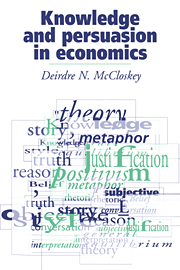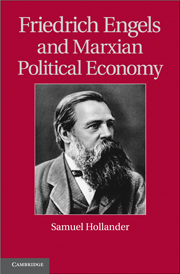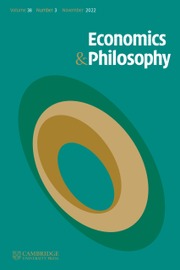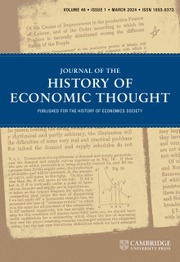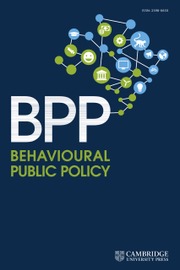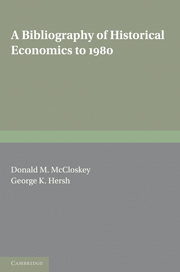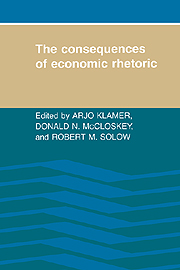Knowledge and Persuasion in Economics
Is economics a science? Deidre McCloskey says 'Yes, but'. Yes, economics measures and predicts, but - like other sciences - it uses literary methods too. Economists use stories as geologists do, and metaphors as physicists do. The result is that the sciences, economics among them, must be read as 'rhetoric', in the sense of writing with intent. McCloskey's books, The Rhetoric of Economics(1985) and If You're So Smart(1990), have been widely discussed. In Knowledge and Persuasion in Economics he converses with his critics, suggesting that they too can gain from knowing their rhetoric. The humanistic and mathematical approaches to economics, says McCloskey, fit together in a new 'interpretive' economics. Along the way he places economics within the sciences, examines the role of mathematics in the field, replies to critics from the left, right and centre, and shows how economics can again take a leading place in the conversation of humankind.
- A major piece of economic philosophy by one of the most famous and controversial writers in the field
- Beautifully written, provocative and witty; will be accessible and attractive to non-economists who want to know how economists think
- We have a very strong list in economic methodology, and are well-known for our books in the field - see Blaug, Hausman
Product details
May 1994Hardback
9780521434751
464 pages
229 × 152 × 30 mm
0.85kg
4 tables
Available
Table of Contents
- Part I. Exordium:
- 1. A positivist youth
- 2. Kicking the dead horse
- Part II. Narration:
- 3. Economics in the human conversation
- 4. The rhetoric of economics
- Part III. Division:
- 5. The Science word in economics
- 6. Three ways of reading economics to criticize itself
- 7. Popper and Lakatos: thin ways of reading economics
- 8. Thick readings: ethics, economics, sociology and rhetoric
- Part IV. Proof:
- 9. The rise of a scientistic style
- 10. The rhetoric of mathematical formalism: existence theorems
- 11. General equilibrium and the rhetorical history of formalism
- 12. Blackboard Marxism
- 13. Formalists as poets and politicians
- Part V. Refutation:
- 14. The very idea of epistemology
- 15. The tu quoque argument and the claims of rationalism
- 16. Armchair philosophy of economics: Rosenberg and Hausman
- 17. Philosophy of science without epistemology: the Popperians
- 18. The Rosenberg: reactionary modernism
- 19. Methodologists of economics, big-M and small
- 20. Getting 'rhetoric': Mark Blaug and the Eleatic Stranger
- 21. Coats/McPherson/Friedman: anti-meta-post-modernism
- 22. Splenetic rationalism, Austrian style
- 23. The economists of ideology: Heilbroner, Rossetti, and Mirowski
- 24. Rhetoric as morally radical
- Part VI. Peroration:
- 25. The economy as a conversation
- 26. The consequences of rhetoric.

